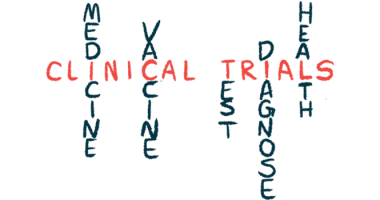Alector, GSK Partner to Develop 2 Therapies for Dementia

Alector and GlaxoSmithKline (GSK) will collaborate in developing and commercializing two therapies aimed at treating an uncommon type of dementia that can cause problems with behavior and language.
Both investigational therapies — AL001 and AL101 — can be used across a range of neurodegenerative disorders, including Parkinson’s, amyotrophic lateral sclerosis (ALS), and Alzheimer’s disease, the companies said in a press release.
The medications are designed to boost the body’s levels of progranulin (PGN), a key regulator of neurological immune activity and the survival of neurons. PGN is linked to frontotemporal dementia, which affects the front and sides of the brain — and starts at a younger age than most types of dementia. In fact, while most dementia is diagnosed in people older than 65, this type of problem with cognition and mental abilities usually begins between ages 45–65.
“Working with Alector’s world class scientists will allow us to investigate the potential of these immuno-neurology therapies to help patients with frontotemporal dementia, a devastating disease without any currently approved treatments, as well as explore the ability to help patients with other neurodegenerative diseases, such as ALS, Parkinson’s and Alzheimer’s,” Hal Barron, MD, GSK’s chief science officer and president of research and development, said in
“Our focus on human genetics and the science of the immune system gives us unique insights into the potential of targets such as progranulin to help patients with a number of neurodegenerative diseases,” Barron said.
Low progranulin levels associate with Parkinson’s and other neurodegenerative disorders and may reflect disease severity and progression. The protein is widely distributed throughout the brain and affects immune responses, neuron survival, and the function of lysosomes, a sort of recycling center in the cell, important for clearing away potentially damaging waste.
Frontotemporal dementia is a severe and rapidly progressing form of dementia that affects some 50,000 to 60,000 people in the U.S. and about 110,000 in the EU, according to Alector and GSK. There currently no FDA-approved therapies for this form of dementia.
AL001 and AL101 are antibodies that elevate the levels of progranulin by blocking the sortilin receptor on cell surfaces, which is responsible for progranulin degradation.
The safety and tolerability of AL101, along with several pharmacological properties, are currently being tested in a Phase 1 trial (NCT04111666) taking place in Orlando, Florida. Enrollment in the trial remains open for up to 53 healthy adults, ages 18 to 65.
“This transformative collaboration brings together Alector’s leading immunoneurology expertise with GSK’s commitment to immunology and human genetics, proven drug development capabilities, and global footprint, to help expand and accelerate the development of our progranulin franchise into large indications,” said Arnon Rosenthal, PhD, CEO of Alector.
“Importantly, this collaboration is designed to fully support AL001 and AL101’s development and to enable Alector to continue building a fully integrated company as we strive to address the high unmet medical need in patients suffering from neurodegenerative diseases,” he added.
Under the terms of the collaboration, the companies will co-commercialize the two therapies and share in profits made in the United States. GSK will retain exclusive commercialization rights outside the U.S.
Alector will receive $700 million in upfront payments and is eligible for up to an additional $1.5 billion in milestone payments related to the development and commercial launch of the therapies.
GSK will lead the commercialization of AL101 for the treatment of Parkinson’s and Alzheimer’s.







